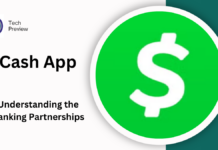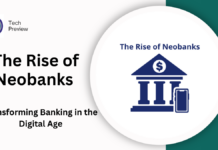High-Risk Merchant highriskpay.com has a lot of knowledge and good connections with banks and financial institutions. This means they can provide your business with trustworthy services. They offer special accounts and payment options useful for new and established businesses. These include managing chargebacks, accepting credit cards, preventing fraud, and processing electronic checks.
We aim to be the top choice for businesses in the U.S. that need high-risk merchant accounts. We offer the best services in the industry, making your payment management faster, safer, and more affordable. You can get approved for your high-risk merchant account right away by choosing us.
Instant Approval For High-Risk Merchant highriskpay.com Accounts

High-Risk Merchant highriskpay.com Accounts
You can get approved for a high-risk merchant account instantly. However, the approval process may take a bit longer for businesses that are considered high-risk or operate in heavily regulated industries, usually a few extra days. But don’t worry; our dedicated team works hard to ensure quick approval for you.
Integrate Seamlessly With Any Platform
You can easily connect and use our payment system with any platform. Whether you want to process payments in a physical store or online, our system supports both ACH (Automated Clearing House) and credit card payments.
We have made it incredibly simple to integrate our services with popular platforms like WordPress, Wix, Shopify, Magneto, Opencart, 3dcart, and many others. This way, you can give your customers a great online payment experience.
High-Risk Merchant Account For Any Credit History
We can help you get a high-risk merchant account, even with a poor credit history. And here’s something impressive: our approval rate for high-risk merchant accounts is incredibly high at 99%, the best in the industry.
High Risk Pay allows you to get approved quickly for a merchant account, even if you have bad credit. Also, there are no fees for setting up or cancelling the account. Applying online is very simple.
High-Risk Merchant Accounts At Competitive Rates
You might be wondering about the fees associated with a high-risk merchant account. It’s true that such accounts often have higher fees and more restrictions. The fees can vary based on the provider and your company’s requirements.
However, at High-Risk Merchant highriskpay.com, we don’t believe in penalizing customers for being in a business with a higher risk of fraud or chargebacks. We offer competitive rates and aim to be fair and transparent in our pricing.
With High Risk Pay, the fees you pay are similar to those of regular card processors. In exchange, as a business owner, you gain multiple options to accept credit and debit cards for transactions. This allows you to serve your customers and make their transactions as convenient as possible.
Furthermore, unlike other providers of high-risk merchant accounts that may ask for application or setup fees of a few hundred dollars, High Risk Pay doesn’t charge anything to set up your own high-risk merchant account.
How Does a High-Risk Merchant highriskpay.com Account Work?
A high-risk merchant account is a type of business bank account that allows merchants to accept credit and debit card payments, even though they have been labelled as high-risk businesses by a previous processor or payment service provider.
High-risk businesses are typically those that operate in industries that are considered to be more prone to fraud or chargebacks, such as:
- Adult entertainment
- Tobacco products
- Online gambling
- CBD and hemp products
- Nutraceuticals
- Subscription boxes
- Travel agencies
- Electronics
- Home Improvement
High-risk merchant accounts typically have higher fees and stricter underwriting requirements than traditional merchant accounts. This is because high-risk businesses are more likely to experience chargebacks, which can be costly for payment processors.
The fees associated with a high-risk merchant account can vary depending on the processor and the business’s specific risk profile. However, some common fees include the following:
- Monthly fee: This fee is typically charged regardless of the number of transactions processed.
- Transaction fee: This fee is charged for each credit or debit card transaction processed.
- Chargeback fee: This fee is charged if a customer disputes a charge and the merchant loses the dispute.
- Reserve requirement: This is a deposit that the merchant must make to the processor to cover potential chargebacks.
The underwriting requirements for a high-risk merchant account are also typically more stringent than those for a traditional merchant account. This may include providing more detailed financial information, passing a background check, and agreeing to additional security measures.
Despite the higher fees and stricter requirements, high-risk merchant accounts can be a valuable tool for businesses that operate in high-risk industries. These businesses can increase their sales and reach a wider customer base by accepting credit and debit card payments.
Why Would Business Owners Be Considered High-Risk?
There are a number of reasons why business owners might be considered high-risk. Some of the most common reasons include:
- Industry: Some industries are simply more prone to fraud and chargebacks than others. For example, businesses that sell high-value items, such as electronics or jewellery, are more likely to be targeted by fraudsters. Businesses that operate in industries with a lot of cash transactions, such as bars and restaurants, are also more likely to experience chargebacks.
- Newness: New businesses are often considered to be high-risk because they have yet to establish a track record of good performance. Payment processors may be hesitant to approve a merchant account for a new business because they are more likely to experience chargebacks or financial problems.
- Financial history: Business owners with poor credit or a history of financial problems may also be considered high-risk. Payment processors may worry that these businesses will not be able to pay their processing fees or that they will default on their merchant account agreement.
- Fraud history: Business owners who have been involved in fraud or chargeback activity in the past may also be considered high-risk. Payment processors may worry that these businesses will continue to engage in fraudulent activity, which could cost them money.
- Location: Businesses that operate in certain countries or regions may also be considered high-risk. This is because some countries have higher rates of fraud and chargebacks than others.
If you are a business owner who has been denied a merchant account because you are considered to be high-risk, there are a few things you can do to improve your chances of approval. First, you should understand why you were denied a merchant account. Once you know the reason, you can take steps to address the issue.
For example, if you were denied because of your industry, you may want to consider partnering with a company that specializes in processing payments for high-risk businesses. If you were denied because of your financial history, you should work on improving your credit score.
You should also be prepared to provide detailed financial information to the payment processor. This may include your business’s tax returns, financial statements, and a personal credit report. You may also need to pass a background check.
By taking these steps, you can improve your chances of being approved for a merchant account, even if you are considered to be high-risk.
What Are The Types of Industries Considered To Be High-Risk Merchant highriskpay.com?
There are a number of industries that are considered to be high-risk for merchant accounts. These industries are typically more prone to fraud and chargebacks, which can make them more expensive for payment processors to work with.
Some of the most common high-risk industries include:
- Adult entertainment: Businesses that sell or provide adult entertainment products or services are considered to be high-risk because they are more likely to be targeted by fraudsters.
- Gambling: Businesses that offer gambling services, such as online casinos or sportsbooks, are also considered to be high-risk because they are more likely to be targeted by fraudsters.
- High-value goods: Businesses that sell high-value goods, such as electronics or jewellery, are more likely to be targeted by fraudsters because these items can be easily resold for cash.
- Subscription services: Businesses that offer subscription services, such as meal kits or beauty boxes, are more likely to experience chargebacks because customers may cancel their subscriptions without realizing that they will still be charged for the next month.
- Travel agencies: Businesses that sell travel tickets or packages are more likely to experience chargebacks because customers may cancel their trips at the last minute.
- Businesses with a lot of cash transactions: Businesses that operate in industries with a lot of cash transactions, such as bars and restaurants, are more likely to experience chargebacks because customers may dispute charges if they believe that they have been overcharged or if they receive poor service.
- New businesses: New businesses are often considered to be high-risk because they have yet to establish a track record of good performance. Payment processors may be hesitant to approve a merchant account for a new business because they are more likely to experience chargebacks or financial problems.
- Businesses with poor credit: Businesses with poor credit or a history of financial problems may also be considered to be high-risk. Payment processors may worry that these businesses will not be able to pay their processing fees or that they will default on their merchant account agreement.
- Businesses with a history of fraud or chargebacks: Businesses that have been involved in fraud or chargeback activity in the past may also be considered to be high-risk. Payment processors may worry that these businesses will continue to engage in fraudulent activity, which could cost them money.
If you are a business owner in one of these industries, you may need help getting approved for a merchant account. However, there are a number of payment processors that specialize in working with high-risk businesses.
These processors may have higher fees and stricter underwriting requirements, but they can offer you the ability to accept credit and debit card payments, which can be essential for businesses in these industries.
What are the advantages of a high-risk merchant account at highriskpay.com?
There are a number of advantages to having a high-risk merchant account, even though it may come with higher fees and stricter underwriting requirements. Some of the most common advantages include:
- The ability to accept credit and debit card payments: This is essential for businesses in high-risk industries, as it allows them to reach a wider customer base and increase sales.
- The ability to process international payments: This can be important for businesses that have customers or suppliers in other countries.
- The ability to offer recurring billing: This can be helpful for businesses that sell subscription services or other products or services that are billed on a monthly or annual basis.
- The ability to offer instalment payments: This can be helpful for businesses that sell high-value items or for businesses that want to make it easier for customers to afford their purchases.
- The ability to offer financing options: This can be helpful for businesses that sell high-value items or for businesses that want to make it easier for customers to afford their purchases.
- The ability to offer loyalty programs: This can help businesses to reward their customers and encourage them to continue doing business with them.
- The ability to offer discounts and promotions: This can help businesses to attract new customers and encourage existing customers to make repeat purchases.
- The ability to provide customer support: This can help businesses to resolve customer issues quickly and efficiently, which can help to reduce the risk of chargebacks.
A high-risk merchant account can be a valuable tool for businesses in high-risk industries. By providing the ability to accept credit and debit card payments, these accounts can help businesses increase sales, reach a wider customer base, and offer their customers a wider range of payment options.
6 BEST High-Risk Payment Processors [Review]
People May Ask
What is a High-Risk Merchant highriskpay.com account?
A high-risk merchant account is a type of business bank account that allows merchants to accept credit and debit card payments, even though they have been labelled as high-risk businesses by a previous processor or payment service provider. High-risk businesses are typically those that operate in industries that are considered to be more prone to fraud or chargebacks, such as:
- Adult entertainment
- Tobacco products
- Online gambling
- CBD and hemp products
- Nutraceuticals
- Subscription boxes
- Travel agencies
- Electronics
- Home Improvement
Why do businesses need a High-Risk Merchant highriskpay.com account?
Businesses operating in high-risk industries may need a high-risk merchant account to accept credit and debit card payments. This is because many traditional payment processors will not approve merchant accounts for businesses in these industries due to the increased risk of fraud and chargebacks.
What are the fees associated with a High-Risk Merchant highriskpay.com account?
The fees associated with a high-risk merchant account can vary depending on the processor and the business’s specific risk profile. However, some common fees include the following:
- Monthly fee: This fee is typically charged regardless of the number of transactions processed.
- Transaction fee: This fee is charged for each credit or debit card transaction processed.
- Chargeback fee: This fee is charged if a customer disputes a charge and the merchant loses the dispute.
- Reserve requirement: This is a deposit that the merchant must make to the processor to cover potential chargebacks.
What are the underwriting requirements for a High-Risk Merchant highriskpay.com account?
The underwriting requirements for a high-risk merchant account are also typically more stringent than those for a traditional merchant account. This may include providing more detailed financial information, passing a background check, and agreeing to additional security measures.
How can I find a High-Risk Merchant highriskpay.com account?
There are a number of ways to find a high-risk merchant account. One way is to search online for “high-risk merchant account” or “high-risk payment processor.” You can also contact a business banker or a credit union to see if they offer high-risk merchant accounts.
Read More: High-Risk Merchant highriskpay.com – All You Need To Know About it- Navigating Cash App: Understanding the Banking Partnerships
- The Rise of Neobanks: Transforming Banking in the Digital Age
- Immediate 6.0 Intal: Revolutionizing the Future of Trading Technology.
- The Truth About Immediate A5 Alrex: Scam or Legitimate Opportunity.
- Transforming Insurance Brokerage: Woodruff Sawyer’s Innovative Use of AI and Data









